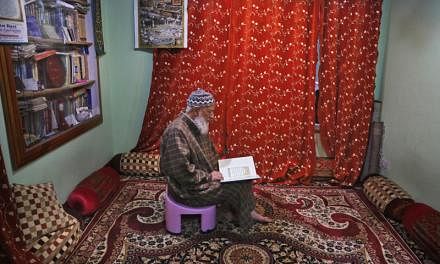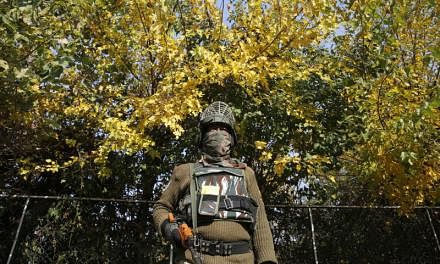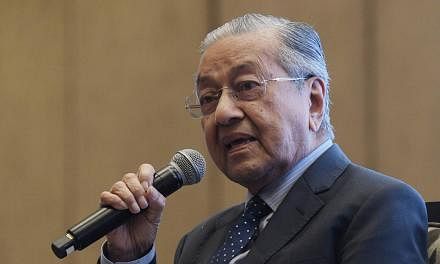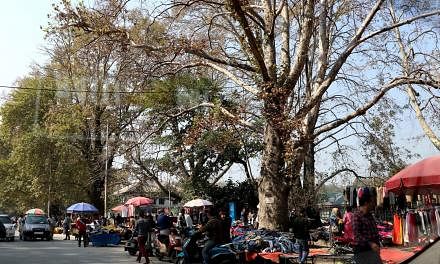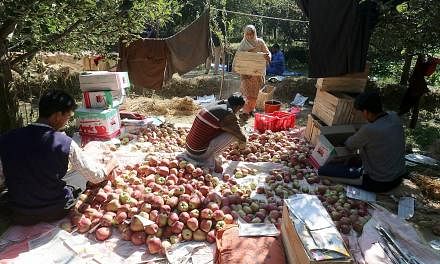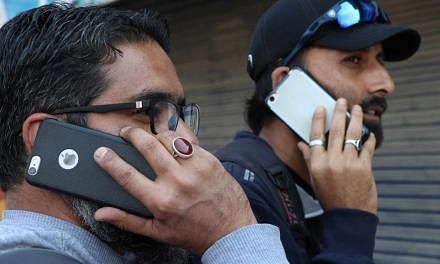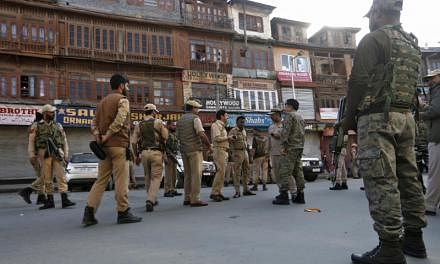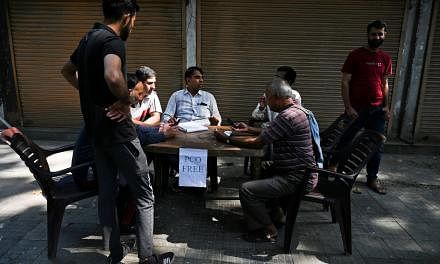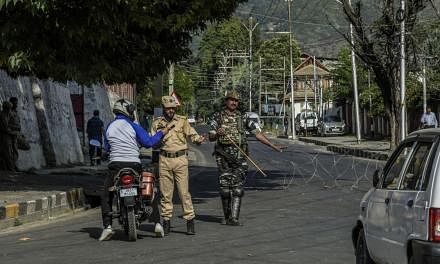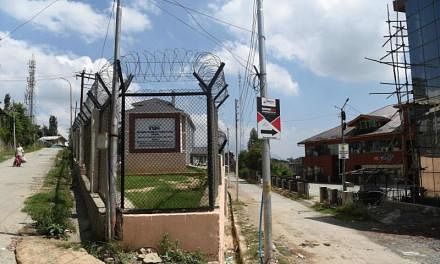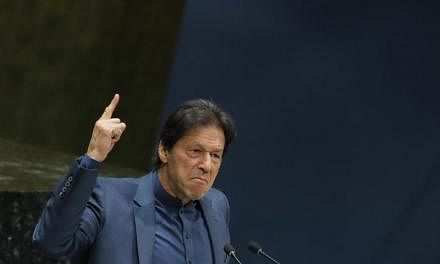NEW DELHI - The Indian government on Monday (Aug 5) announced that it had decided to scrap the special status given to the trouble-torn state of Jammu and Kashmir, which it has struggled to integrate into the country. It also plans to bifurcate the state in a wide-ranging set of decisions that are widely expected to invite a backlash.
Home Minister Amit Shah on Monday announced the changes for Kashmir, which has been in lockdown in anticipation of possible violent protests over the government's gameplan.
Residents of Muslim-majority Kashmir have long opposed the scrapping of Article 370, which was a condition on which the princely state of Kashmir agreed to join India during the partition of India from Pakistan in 1947. Different states were then allowed to choose which country to join.
"Jammu and Kashmir was already a part of India much before Article 370; it was accepted with the idea that it (the Article conferring special status) will eventually be removed but no political party had the will to do it,'' Mr Shah told the Upper House of Parliament amid protests by opposition parliamentarians.
Article 370 allows the state to have its own Constitution and gives exclusive rights to the state's residents to secure government jobs, own land and in matters other than the areas of foreign affairs, security and finance.
Scrapping Article 370 means Kashmir will be subject to the laws governing the rest of India, which is a key poll promise of the ruling Bharatiya Janata Party (BJP).
The government also announced that it was bifurcating the state of Jammu and Kashmir into the Union territory of Ladakh, which will not have a legislature, and the Union territory of Jammu and Kashmir, which will have one. The change from state to union territory means that the federal government will have a greater say in Kashmir, said analysts.
The decision needs to be passed by both houses of parliament and will likely be taken up on Monday for a vote. The decision on Article 370 also kicked up a debate on whether the government's move is legally tenable and would hold up if challenged in the Supreme Court.
Prime Minister Narendra Modi has a majority in the Lower House and has managed to scrape together a majority in the Upper House with the help of regional parties.
Kashmir has been on the edge after the government on Friday asked all tourists and Hindu pilgrims, who were taking part in the annual pilgrimage to the Amarnath cave, to leave Kashmir. An additional 25,000 security personnel were also mobilised. Reports said that an additional 8,000 troops had been mobilised following the announcements. The government had cited a terror threat to the pilgrimage but did not at the time reveal the reason for its other extraordinary measures.
It followed this up by putting Kashmir's politicians, including former chief ministers Mehbooba Mufti and Omar Abdullah, under house arrest early on Monday.
All educational institutes were ordered shut, public meeting and rallies were banned and restrictions placed on mobile phones, landlines and the Internet.
Kashmiris living outside Kashmir tweeted about how they could no longer connect with family and friends in the state.
Kashmir's politicians reacted with anger to the announcements.
"Government of India's unilateral and shocking decisions today are a betrayal of the trust that the people of Jammu and Kashmir had reposed in India when the state acceded to it in 1947. The decisions will have far-reaching and dangerous consequences. This is an aggression against people of the state..,'' said Mr Abdullah in a statement.
Meanwhile, Ms Mufti said: "Today marks the darkest day in Indian democracy. Decision of J&K leadership to reject two-nation theory in 1947 and align with India has backfired. Unilateral decision of GOI (Government of India) to scrap Article 370 is illegal and unconstitutional which will make India an occupational force in J&K."
BJP leaders called it a historic move even as opposition leaders called it the murder of democracy.
Congress leader Ghulam Nabi Azad said: "The BJP is drunk on power and the government acted like thieves in the night. Article 370 has been scrapped to help BJP get more votes."
Kashmir is at the heart of a conflict between India and Pakistan. The two countries have gone to war thrice in the past over Kashmir.
An armed insurgency that started in 1989 has led to the deaths of thousands of people. And in recent years there has been a deterioration of law and order with young people taking to pelting stones at security forces.
In 2016, a terror attack on an Indian Army camp in Uri in Kashmir led to the death of 19 soldiers.
Early this year, India and Pakistan launched tit-for-tat air strikes after a suicide bombing hit a bus killing 40 paramilitary soldiers belonging to the Central Reserve Police Force in Pulwama district.
The Indian Army said the past week has also seen a spurt in activities of infiltration and accused Pakistan's Border Action Team of disrupting peace along the Line of Control, the de facto border between India and Pakistan, and within Kashmir.
"Pakistan Army regularly attempts to push terrorists through infiltration," said the Indian Army.
The Pakistan side has denied these allegations and in turn accused India of propaganda and of "trying to divert attention of the world from the situation of Kashmir".
Pakistan's Prime Minister Imran Khan on Sunday accused India of violating international humanitarian laws by "attacking innocent civilians" across the Line of Control near Jammu and Kashmir.
"I condemn India's attack across LOC on innocent civilians and its use of cluster munitions in violation of int (international) humanitarian law and it's own commitments under the 1983 Convention on Certain Conventional Weapons. UNSC must take note of this international threat to peace & security," he said in a tweet.
Analysts said that the scrapping of Article 370 and bifurcation would have a deep impact on Kashmir.
"Wherever you stand on this, it will make a huge difference to the way Jammu and Kashmir perceives the world and the world looks at Kashmir. Time to pray and hope for peace!" tweeted the former vice-chancellor of Jammu University, Mr Amitabh Matoo.


